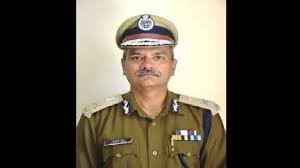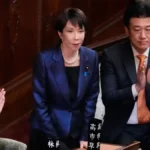IPS Officer Anurag Garg Appointed as New NCB Director General
Introduction to Anurag Garg’s Appointment
In a significant move, the Government of India has appointed IPS officer Anurag Garg as the new Director General of the Narcotics Control Bureau (NCB). This appointment, made by the Ministry of Home Affairs, comes at a critical time as the country intensifies its efforts against drug trafficking and abuse. Anurag Garg, a 1992-batch Indian Police Service officer from the Madhya Pradesh cadre, brings extensive experience and expertise to this pivotal role.
Anurag Garg’s Experience and Qualifications
Anurag Garg’s career in law enforcement spans over three decades, during which he has held various important positions. Before his appointment as DG of the NCB, he served as the Inspector General of Police in Madhya Pradesh and had significant responsibilities in combating organized crime and drug-related offenses. His proven track record in these areas makes him a suitable candidate to lead the NCB in addressing the escalating drug menace in India.
Importance of the NCB in Drug Control
The Narcotics Control Bureau plays a crucial role in drug law enforcement in India. Established in 1986, the NCB is responsible for the coordination of efforts between various agencies to combat drug trafficking and abuse. With the rising concern over substance abuse and drug-related crimes, the appointment of a competent leader like Anurag Garg is expected to enhance the bureau’s effectiveness in tackling these challenges.
Challenges Ahead for Anurag Garg
As the new DG of the NCB, Anurag Garg faces several pressing challenges, including the proliferation of synthetic drugs and the need for better coordination among state and central agencies. The current landscape of drug trafficking in India is complex, with routes evolving rapidly and new substances emerging. His leadership will be instrumental in devising strategies to combat these threats effectively.
Conclusion
Anurag Garg’s appointment as the new NCB Director General marks a pivotal moment in India’s fight against drug trafficking. His extensive experience and proactive approach are expected to bring positive changes in the bureau’s operations and strategies.

Why This News is Important
Strengthening Drug Control Measures
The appointment of Anurag Garg as the NCB Director General is crucial for India’s ongoing efforts to strengthen drug control measures. With increasing instances of drug abuse and trafficking, a focused approach led by a seasoned officer is essential.
Promoting Public Health
Effective drug control directly correlates with public health outcomes. By leading the NCB, Anurag Garg will play a significant role in preventing substance abuse and protecting vulnerable populations from the repercussions of drug trafficking.
Enhancing Coordination
Anurag Garg’s leadership is expected to enhance coordination between various law enforcement agencies, creating a more unified front against drug trafficking. This collaboration is vital for addressing the complexities of drug-related crimes.
Addressing Synthetic Drug Challenges
The rise of synthetic drugs poses a unique challenge. Anurag Garg’s experience will be crucial in formulating strategies to tackle this emerging threat, which has significant implications for public safety and health.
Building International Partnerships
As drug trafficking often crosses international borders, Anurag Garg’s appointment could also foster better collaboration with international agencies. This global approach is essential for comprehensive drug enforcement.
Historical Context
Formation of the Narcotics Control Bureau
The Narcotics Control Bureau (NCB) was established in 1986 in response to increasing concerns about drug trafficking in India. Its creation marked a significant step in formalizing the country’s commitment to combating drug-related issues. The NCB was tasked with coordinating efforts among various law enforcement agencies, both at the state and national levels, to effectively tackle drug offenses.
Challenges Over the Years
Over the years, the NCB has faced numerous challenges, including the emergence of new drug trends, evolving trafficking routes, and the increasing potency of synthetic drugs. The agency has had to adapt to changing dynamics and develop innovative strategies to counter these threats, emphasizing the need for experienced leadership.
Key Takeaways from “IPS Officer Anurag Garg Appointed as New NCB Director General”
| Serial Number | Key Takeaway |
|---|---|
| 1 | Anurag Garg has been appointed as the new DG of the NCB. |
| 2 | He has over three decades of experience in law enforcement. |
| 3 | The NCB is crucial for combating drug trafficking in India. |
| 4 | Anurag Garg will address challenges related to synthetic drugs. |
| 5 | His leadership aims to enhance coordination among agencies. |
Important FAQs for Students from this News
1. Who is Anurag Garg?
Anurag Garg is a 1992-batch IPS officer from the Madhya Pradesh cadre who has recently been appointed as the Director General of the Narcotics Control Bureau (NCB) in India.
2. What is the role of the NCB?
The Narcotics Control Bureau is the principal agency in India responsible for combating drug trafficking and abuse. It coordinates efforts among various law enforcement agencies to enforce drug laws.
3. Why is Anurag Garg’s appointment significant?
His extensive experience in law enforcement, particularly in tackling organized crime and drug offenses, is expected to enhance the effectiveness of the NCB in addressing the challenges of drug trafficking in India.
4. What challenges does the NCB face?
The NCB faces challenges such as the rise of synthetic drugs, the need for better coordination among agencies, and evolving drug trafficking routes.
5. How will Anurag Garg’s leadership impact drug control in India?
Anurag Garg’s leadership is anticipated to improve strategies for drug enforcement, enhance inter-agency collaboration, and address emerging threats in the drug landscape.
Some Important Current Affairs Links

















